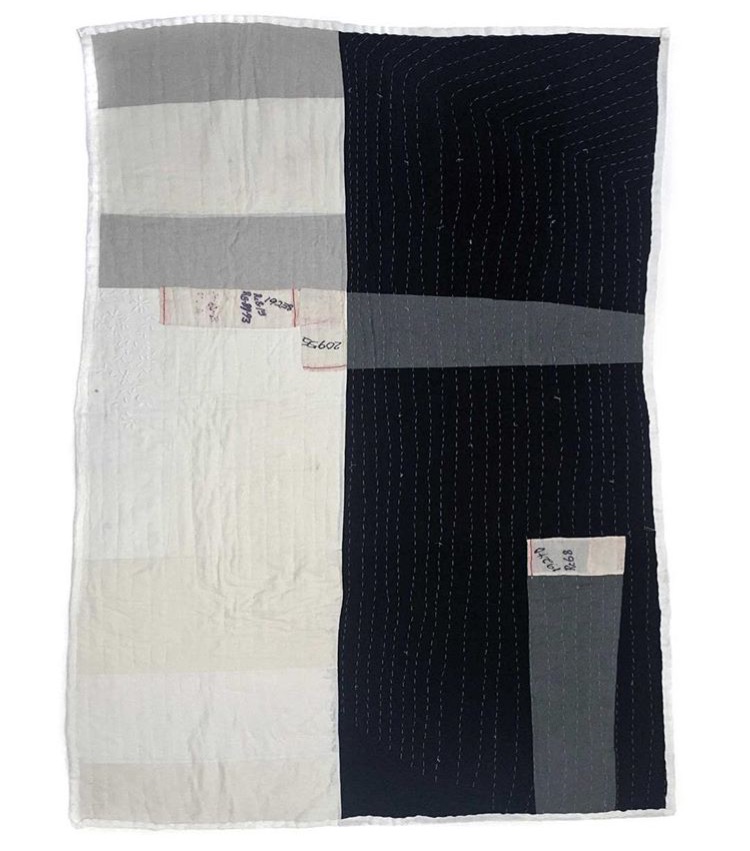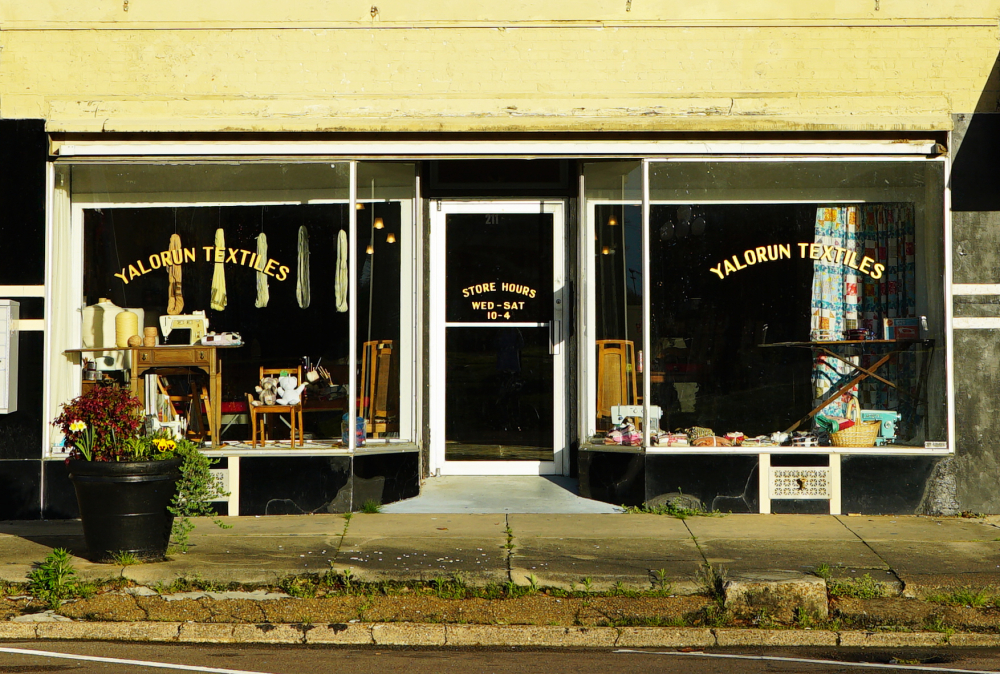In 2010, visual artists Coulter Fussell and Megan Patton opened Yalo Studio in Water Valley, Mississippi. The plan was for the duo to quit their waitressing jobs some twenty miles north in the college town of Oxford, and devote their time to painting and selling their own work. Water Valley was the perfect place to make this happen. Though small, Water Valley offered lower rent prices, allowing the two to purchase a former barber shop on Main Street, which dates back to the 1800s. Coulter and Megan spent months renovating the space themselves, with Coulter taking breaks throughout the days to care for her newborn baby.
Once the building was finished, it was clear that it accommodated for studio space in the back, and the large, open glass storefront windows lent perfectly to a gallery space for displaying and selling other artists' work, as well as their own. Megan eventually left Yalo Studio to focus on her family, though her involvement was crucial to expanding the reach of the studio and gallery as well as its various projects.
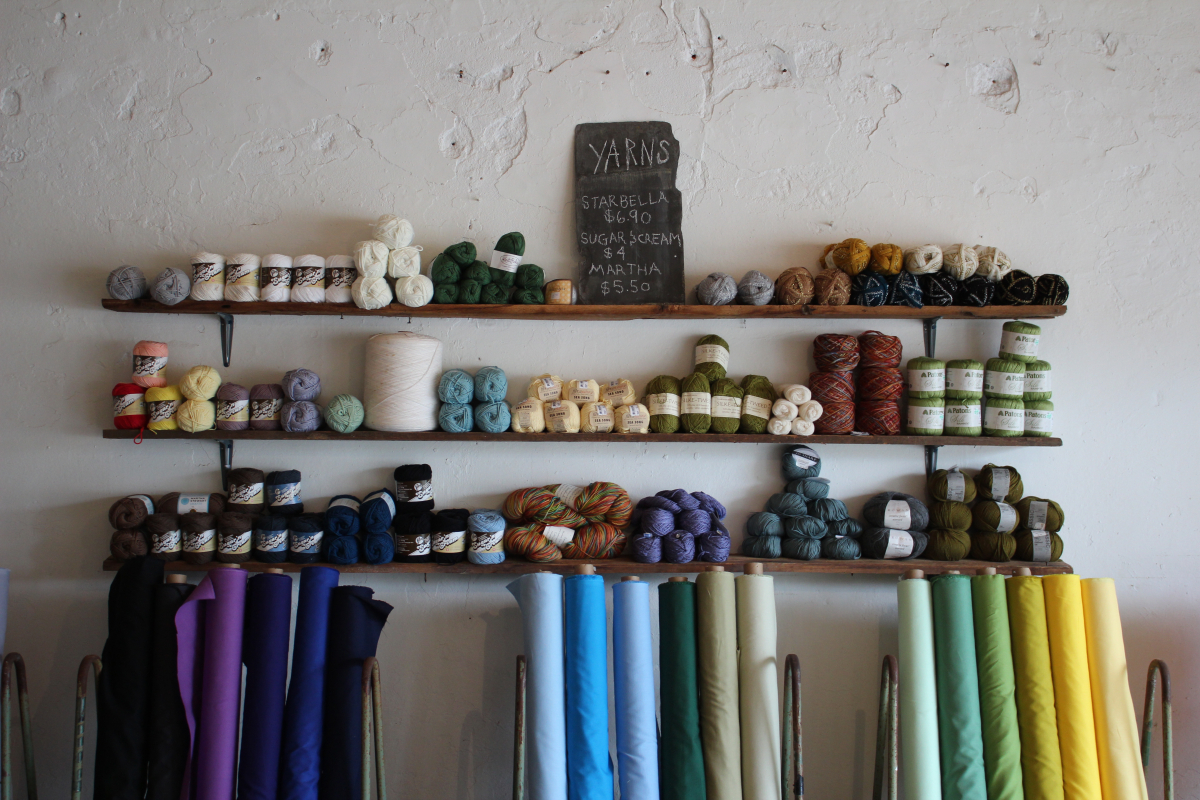
Though the space has evolved from Coulter and Megan’s initial vision, the gallery has become successful, with around six shows a year that often showcase a dynamic Southern aesthetic, simultaneously engaging high art and the vernacular. Coulter’s father, Fred C. Fussell, is a folklorist, former museum curator, and preservation specialist for art environments including Eddie Owens Martin’s Pasaquan near Columbus, Georgia. This family connection gave Coulter an already established list of Southern artists to approach for exhibitions. “Then, by some crazy weird sort of fluke, The New York Times wrote an article about me and a couple of friends in Water Valley and the businesses we had started. That led to a woman in New York named Mary Lapides calling me out of the blue. She has a summer home in Coffeeville [Mississippi], and she wanted to collaborate on a summer artist residency,” explains Coulter.
Coulter and Megan's Yalo Studio developed a dynamic Southern aesthetic, simultaneously engaging high art and the vernacular.
Now four years into the Lapides/Pinehurst Summer Residency at Yalo Studio, Coulter and Mary have invited artists, mostly from New York City, to spend up to six weeks in Water Valley. During this time, the artists usually work on new material, resulting in an exhibition at Yalo Studio. Coulter says of the residencies, “I introduce [the artists] to [local] people, and they make a show that somehow connects to the community in some way. Mary and I didn’t necessarily tell them to do that, that’s just something that all the artists have naturally done.” The visiting artists have been inspired by the community’s people, landscapes, and even Water Valley’s history. One artist, Andrea Ray, honored the town’s railroad past, temporarily turning Yalo Studio into a train station, playing recordings of actual train whistles at the exact times they used to pass through the center of Water Valley. “This is a railroad town, so everyone here is descended from the railroad. The last train that passed through here was in the [19]80’s, so there are still people here who remember the sounds of the trains,” says Coulter. Another resident artist, Zefrey Throwell, collected oral histories from Water Valley residents, which he turned into a film. Zefrey also created plaques, honoring the lives of some of his participants, calling them “Everyday Awards”.
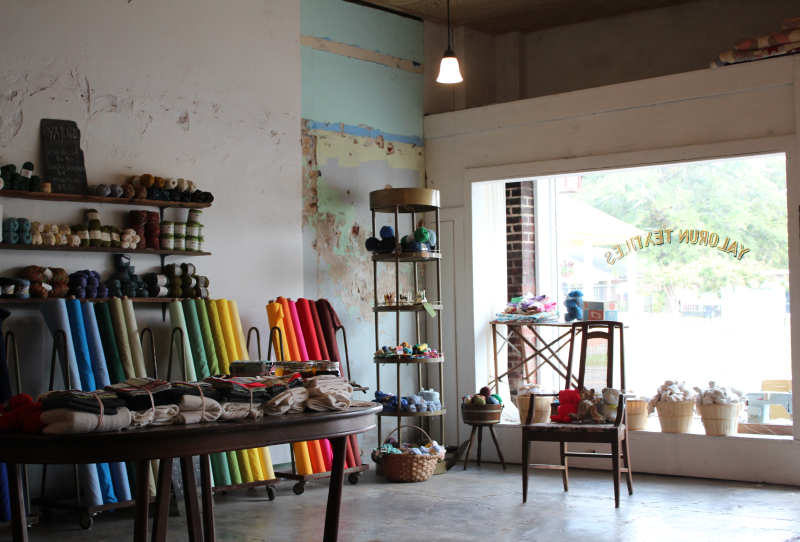
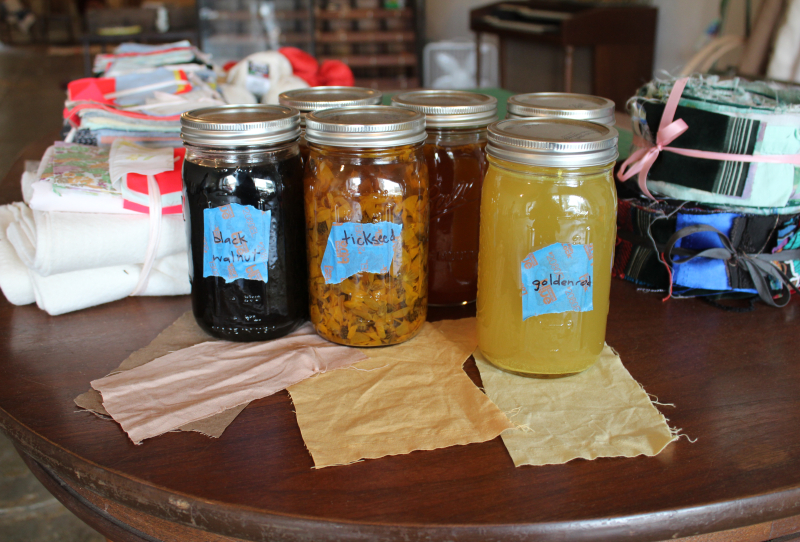
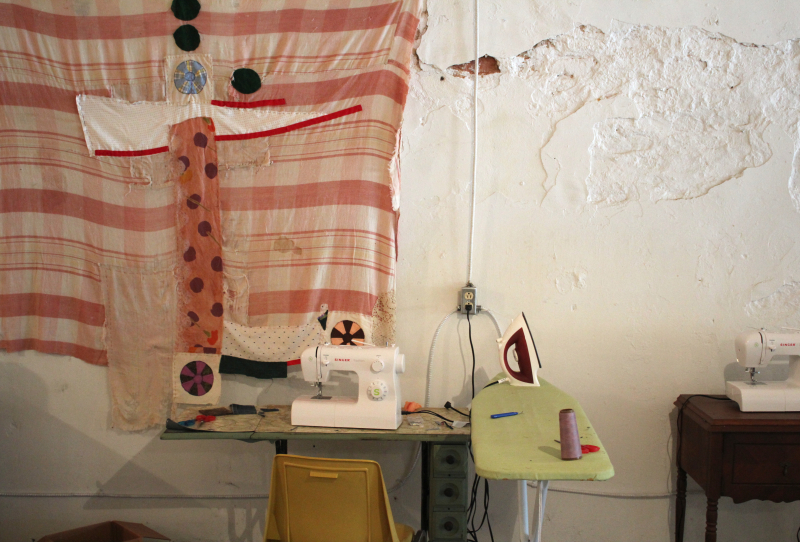
One of the resident artists, Susan Cianciolo, is a New York City designer working in fabric arts. “Susan and I met, we did the show over at Yalo (the result of Susan’s residency), totally hit it off, just shared a similar aesthetic when it comes to fabric work. It was last summer that I was like, ‘I’ve always wanted to open up a fabric store.’” Susan felt the same way and, enamored with Water Valley, offered to partner with Coulter to open YaloRUN Textiles. With the help of a third partner, Kiva Motnyk, who runs Thompson Street Studio, a fabric design house in New York City, YaloRUN opened in the summer of 2015. Though still taking shape, YaloRUN serves as a fabric supply store in the front, with space in the back for quilting, knitting, and natural-dying workshops. Future plans for the space include quilt production for Thompson Street Studio’s Run Home collection.
When I collaborated with Mom, she sort of let me do it how I wanted to, but applied her skill and technique to make it functional. That's when I realized that quilting could be really liberating.

Kiva helps stock the store with fabric supplies, yet Coulter says at least half of the fabric in YaloRUN is donated to her from the community. “A man brought me all his mother’s stuff, and it’s fabric [she collected] from all over the world in her travels. [We have] a 98-year-old woman’s huge yarn collection. People bring me old sewing machines; interior designers bring me their old fabric books. Someone brought me a washer and dryer. I’ve been really touched by it.” Not only has the community found a place to donate their unused cloth, Coulter then uses these materials to teach workshops in fabric arts. Members of the workshops, who often have never quilted before, end the workshop with a full-size quilt. Coulter also holds knitting and dying workshops, she explains, “[During] my dye workshops, we’d go out in the woods, they wear boots, we collect the stuff, came back the next day after [the yarn] dyed all night and made something with it. My workshops are kind of intense because craft isn’t easy. It’s a lot of work. It’s a lot of steps, and I want you to really know how to do it. I want them to leave knowing they actually really did that from beginning to end.”
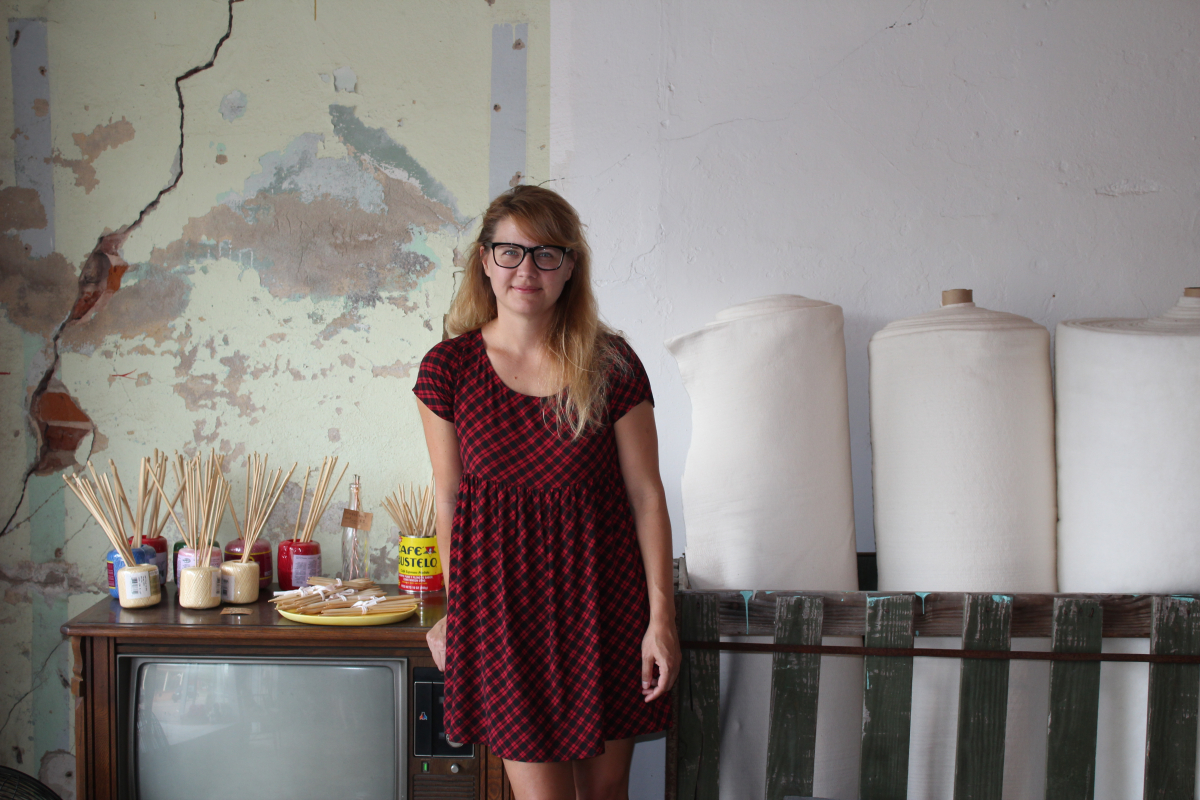
My workshops are kind of intense because craft isn’t easy. It’s a lot of work. It’s a lot of steps, and I want you to really know how to do it.
Craft work was not something Coulter was always interested in. As a young girl with three brothers, she knew how to quilt because her mother, Cathy Fussell, an award winning quilter, had always done it. But Coulter had other interests, particularly painting and drawing. When she realized that quilting could be creative, she became more interested in it. “[My mother] didn’t make me learn patterns to be precise; I think she knew that was never going to happen with me anyway. That’s when she and I started working together, and I saw that there could be freedom in craft work...When I collaborated with Mom, and she sort of let me do it how I wanted to but applied her skill and technique to make it functional, is when I realized that it could be really liberating, not like jail, which is how I always viewed it as a kid.”
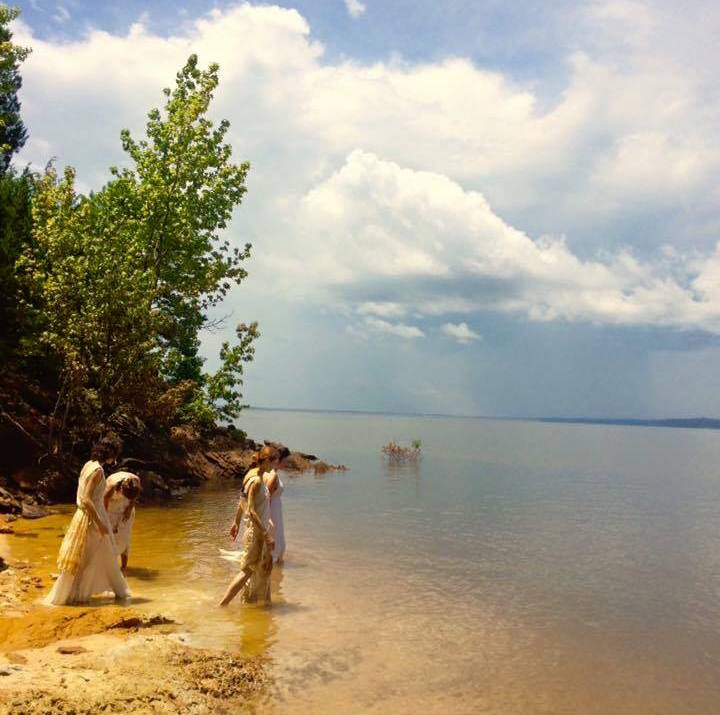
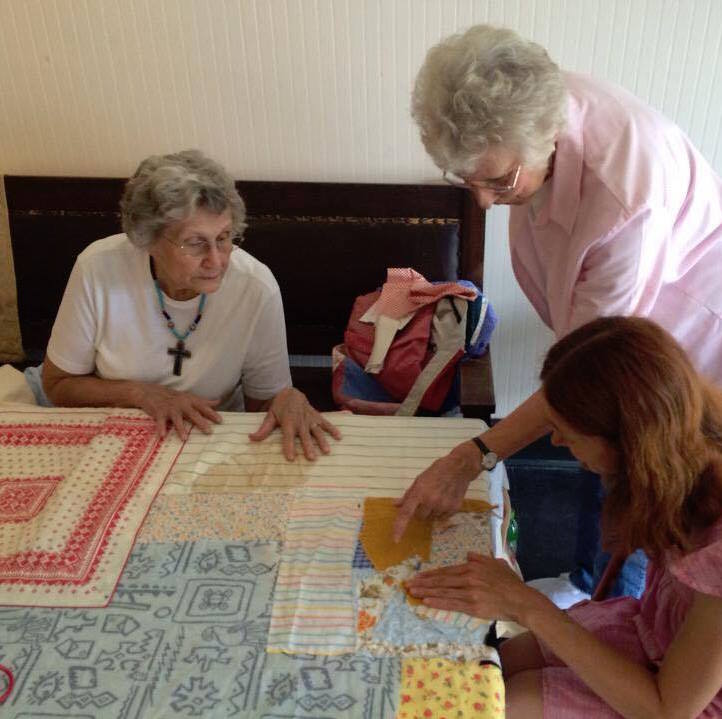
While Coulter may have once felt limited by quilting and craft work, she has taken the skills she learned from her mother and used those techniques to contribute to a creative economy. The inspiration for Yalo came easily, but the business aspects of running the studio and storefront have been a work in progress for Coulter, yet her creativity and collaborative focus has encouraged success in her businesses. Both Yalo Studio and YaloRUN seamlessly blend traditions and styles both from within and beyond Mississippi. Through the residency program, artists who primarily live and work in places like New York City experience and become influenced by the beauty of rural Mississippi landscapes and the communities inhabiting them. During her workshops, Coulter teaches traditional fiber arts methods from hand-dying textiles with natural sources like Sumac berries and Goldenrod, to basic knitting and quilting techniques. This allows her students to use these skills in new and creative ways, just as Coulter’s mother encouraged in her own craft work. Though Coulter may not always be able to anticipate the result of her efforts, we can be sure that she will continue to evolve the methods and techniques of traditional arts and entrepreneurship in Mississippi.
